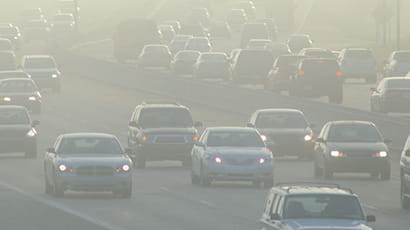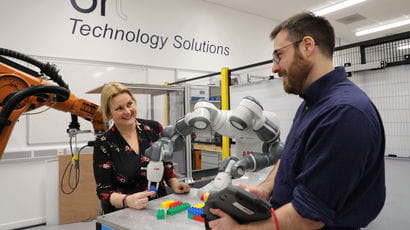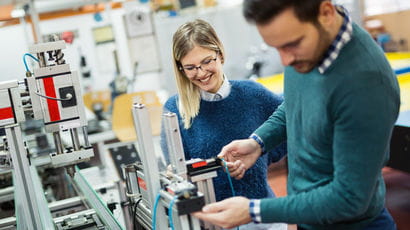Air quality
Putting people at the heart of environmental change.
We can’t calculate our way out of environmental disaster. Numbers matter, but more than that, it’s the people who cause the figures to rise or fall that will lead the way. A Europe-wide initiative proves as much, with thousands of citizens having their say and acting on it.
“We’ve become too obsessed with the numbers and we’ve forgotten about the fact that it’s about protecting people,” says Professor Enda Hayes, Professor of Air Quality and Carbon Management and Director of UWE Bristol’s Air Quality Management Resource Centre (AQMRC), and Technical Director of ClairCity.

Thinking differently about pollution
He refers to the predominant approach to tackling the world’s air pollution crisis, which is linked to seven million premature deaths each year. “We need to think differently about the way we manage pollution, how we monitor it and how we create interventions that can maximise the public health outcome.”
The answer, as evidenced by the Centre’s work, lies in bottom-up democracy – enabling citizens to be part of the conversation.
"People are realising that technology alone will not resolve the problem, we need societal change where we collectively do things differently. It will take time, but we will get there."
Professor Enda Hayes Professor of Air Quality and Carbon Management and Director of UWE Bristol’s Air Quality Management Resource Centre (AQMRC)
Citizen science
One of the greatest challenges – and most pressing needs – is engaging with hard-to-reach communities, who are often the most adversely affected by poor air quality.
Enter ClairCity, a four-year project led by UWE Bristol in partnership with ten research organisations and six cities/regions across Europe: Bristol, Amsterdam, Slovenia, Portugal, Poland and Italy. Since 2016, this EU-funded initiative has connected with 10,000 people to gauge opinion and mobilise support around improving the environmental and societal landscape.
From educational resources to a gaming app that gives people the hypothetical power and responsibility to implement citywide solutions, ClairCity has shown what can be achieved through collaboration. The Skylines app alone prompted 80% of participants to say they felt inspired to make different choices to ensure a future with clean air and lower carbon emissions.
“It’s about working with people to identify how they want their future city to be, understand the barriers they face and what enabling mechanisms a local authority can put in place so that greener choices become the social norm for everybody,” says Enda, Technical Director of ClairCity.
People-centred approach
It’s an approach that has been emulated in a subsequent EU project, WeCount, where local communities in cities like Cardiff are using low-cost sensors to help monitor urban traffic. The resulting data will feed into air pollution models, tracked against cost analyses and emissions data, and presented to the local authorities to inform policy.
The Centre’s people-centred, public health and social equity oriented approach is gaining widespread recognition among policymakers, thanks to collaborations with notable bodies like Public Health Wales and the European Environment Agency. Its research is also referenced in the UK’s latest Clean Air Strategy (2019), WHO Health Inequalities Report (2019) and the Welsh Government/Public Health Wales Air Pollution, Risks and Inequalities Report (2018).
Contribution to the UN 2030 sustainable development goals
UWE Bristol is proud to align our research to the UN sustainable development goals. The above research aligns with the following goals:
Breaking research boundaries
We’re tackling the big issues of today and tomorrow head on. This is big, brave thinking for a better future. It’s research done well. Research with the power to transform lives, transform the future.
Breaking research boundariesYou may also be interested in

Air Quality Management Resource Centre (AQMRC)
A leading provider of information, advice, research and consultancy around air quality and carbon management.

Research in the College of Arts, Technology and Environment
The College of Arts, Technology and Environment (CATE) has a well-established and continuously developing research environment.

News
The latest news stories from across UWE Bristol.





